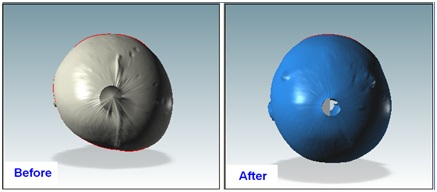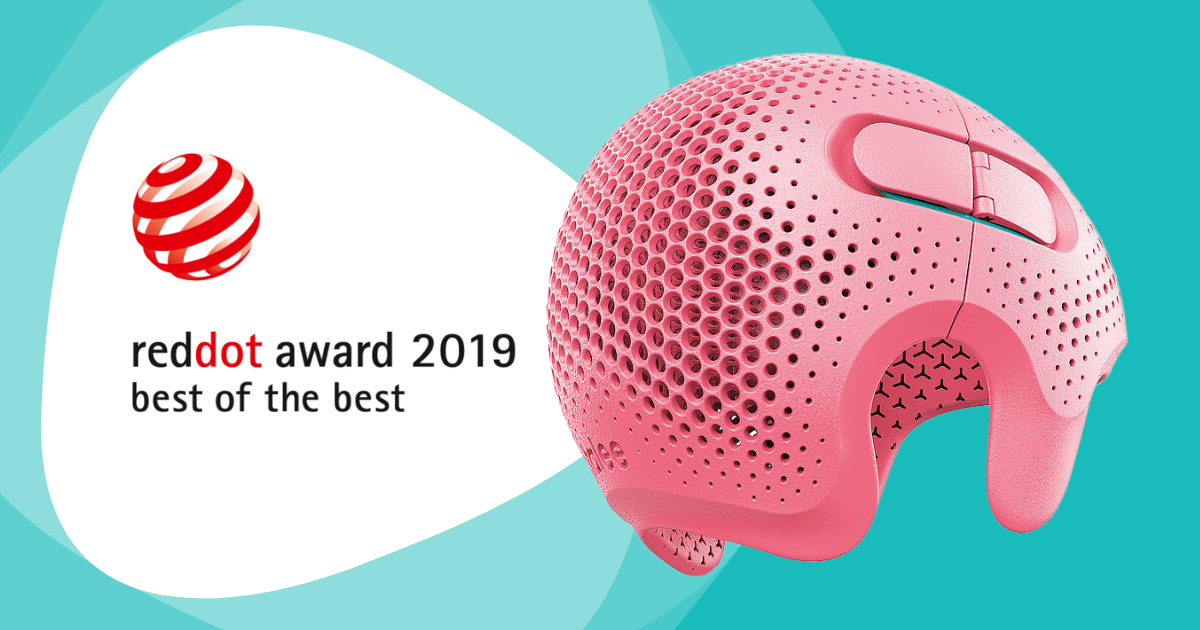
Despite the NHS’s admission that cranial orthoses “improve the symmetry of a baby’s skull”, most parents are actively discouraged from putting a helmet on their baby. They are told that plagiocephaly is only cosmetic and usually resolves itself without any need for treatment.
By contrast, helmets are widely considered the standard treatment for moderate and severe cases of plagiocephaly in the USA. Not only that, but a recent investigation of trends in plagiocephaly diagnosis and treatment concludes that referral rates are improving, and that infants with plagiocephaly are being treated at a younger age since the Back to Sleep campaign.
The Patient-Led Approach to Plagiocephaly Referral
The USA is by no means the only pro-helmet country. In Germany, it is considered best practice for doctors to run through the available options, highlighting the potential risks associated with leaving growth to take its natural course. Parents are not pressured into having their babies treated, but they are given enough information to enable them to make informed decisions.
According to anecdotal evidence, such as these case studies from babies Yannik, Keir and Klara on the website of nonprofit organisation Headstart4Babies, a number of UK infants have been referred to plagiocephaly clinics in Germany when our own health service was unable to provide for them.
In many parts of Australia, public children’s hospitals provide funding for the treatment of moderate and severe plagiocephaly. As in Germany, parents are provided with sound, research-led information on the available options and the decision is ultimately left in their hands.
As a case in point, here’s a quick comparison of the advice given by The Royal Children’s Hospital Melbourne and on the NHS Choices website:
The Royal Children’s Hospital Melbourne:
“Wearing the helmet doesn’t hurt and babies usually get used to it very quickly. Parents can feel quite emotional when their child first wears the helmet. It can be helpful to know this is a common feeling and to remember treatment is temporary and outcomes are normally very good.”
The NHS Choices website:
“A helmet or headband can be used to help correct the shape of your baby’s skull, but it may not work in all cases. You should consider the inconvenience, expense and possible discomfort to your child before trying a headband or helmet.”
While the countries cited here may only represent a small sample of the developed world, the implications are clear. Rather than highlighting a need for increased funding, these examples suggest that the real issue at stake is the kind of advice that is being provided to parents.
Doctors in the USA, Germany and Australia take a patient-centred approach, providing parents with unbiased information about the options that are available to them and the pros and cons of each. This enables parents to come to their own decisions and prevents any unpleasant surprises later on.
While we are extremely lucky to have access to free healthcare in the UK, the system’s one-size-fits-all approach can seem to be inherently flawed at the individual level. In the case of plagiocephaly, the NHS’s failure to provide information for this small but significant portion of the population is leaving thousands of babies with irreversible head shape deformities that might otherwise have been avoided.
The pervading attitude within the NHS community seems to be that if the NHS doesn’t treat it, it must not be worth treating at all. This is generally tied in with an assumption that private companies are only doing it for the money, rather than providing a valuable and worthwhile service. And while this view may have been refuted by science time and time again, it remains prevalent in the advice that most parents are receiving.

If you would like to get a valid, professional opinion on the measurable severity your baby’s plagiocephaly, Technology in Motion can help. We offer a free, no obligation evaluation to assess the severity of the deformity and should treatment be recommended, we’ll provide you with sound, research-backed advice to help you make the right decision for your baby.
Call 0330 100 1800 to arrange an appointment, or browse our website for more information on our clinics and the services that we provide.


